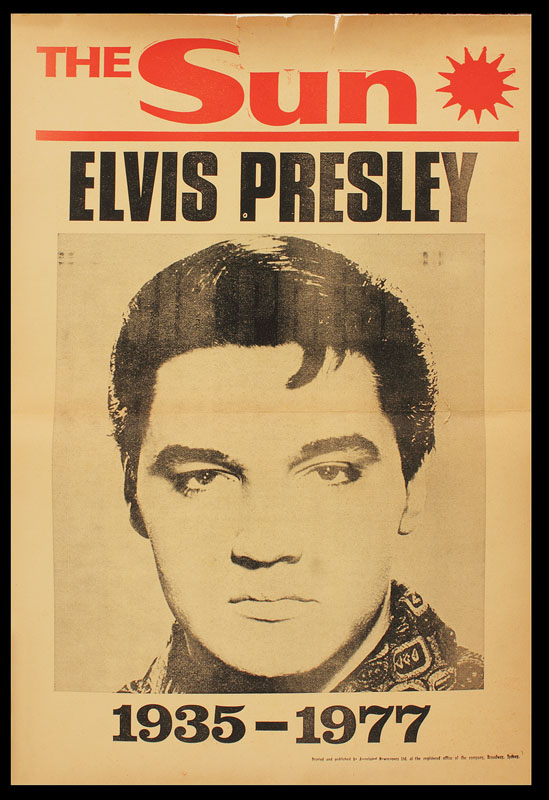
Ever after, that year of 1977,
we Americans abroad asked each other,
“Where were you when Elvis died?” a kind
of emotional milestone it was for us
travelers then, a tremor in the very
ground of our national identity.
What a shock seeing on the August streets
of Avignon the full-page headline
ELVIS EST MORT, my immediate response
to take a bottle of good Rhone down
to its namesake river and get weepily
sloshed on the vin and my sorrow, get
myself in a state that was not appreciated
by one particular Egyptian student
bunking in the same tented enclosure
as I at the Bagatelle campground.
It happened to be Ramadan, with
the young Egyptians fasting until dusk
at which time they would cook up the fish
caught down near where I was getting drunk.
It could have turned ugly, I with my
American notions of individual
freedom and the Egyptian boys’ strict
sense of Islamic law. Harsh words were
spoken, contempt flickered in that boy’s face,
near-denunciation. But the milder voice
of another, Khaled Rabie, prevailed,
mollifying the angry student and
explaining to me the offense taken.
I understood and learned, and things calmed down
in our little enclave. They shared their catch
with me, and I offered a sweet Provençal
melon, the best, I’d heard it said, in the world.
They commiserated on the death of Elvis —
I saw how everyone loved Elvis! — and I
felt less lonely in my grief. Next day,
when I left to explore the city,
the Egyptian boys swore that my belongings
were safe with them, and I found that I
had no trouble trusting them. I never forgot
that gentle peacemaker Khaled Rabie
who saved a defensive American
from his friend’s wrath and who, when he wrote
his address in my travel journal, urged me
to look him up if I was ever in Cairo.
Thomas R. Smith
.
